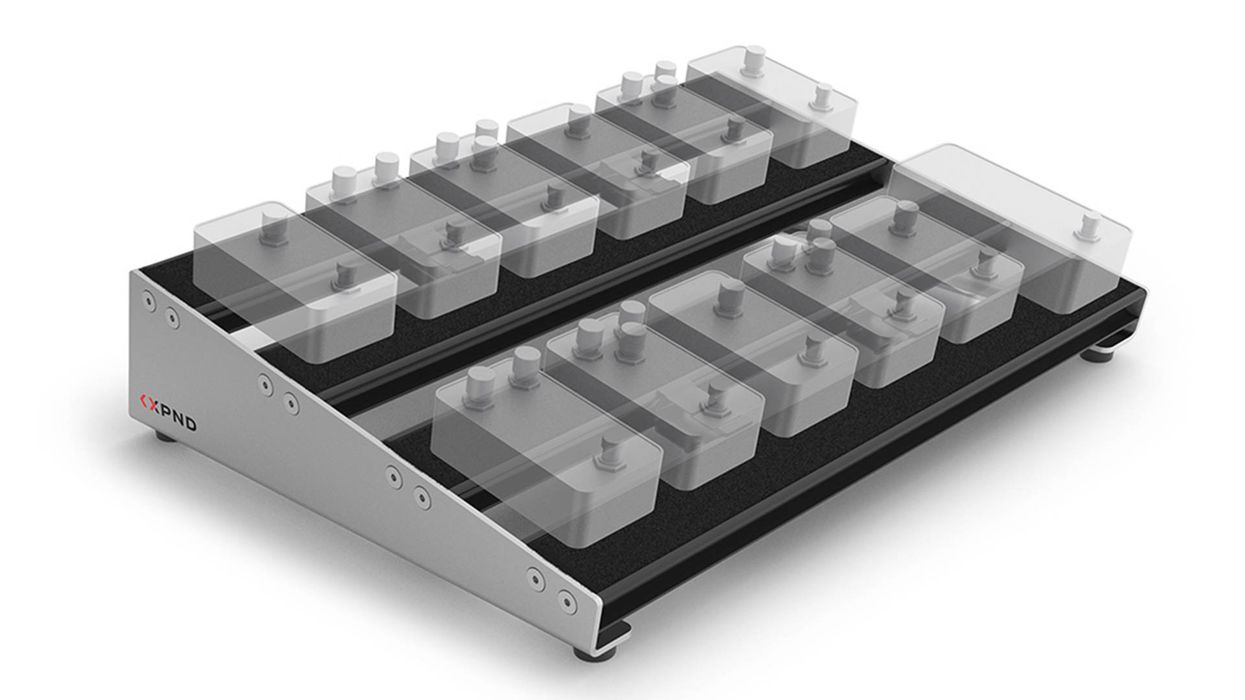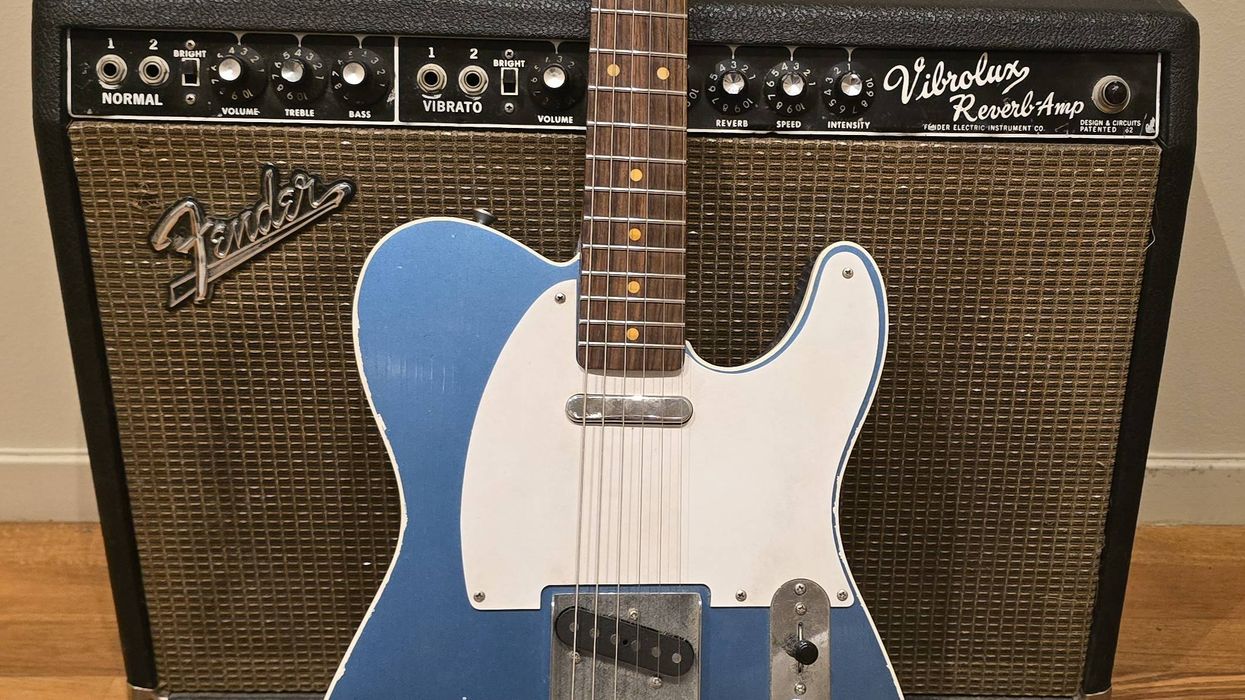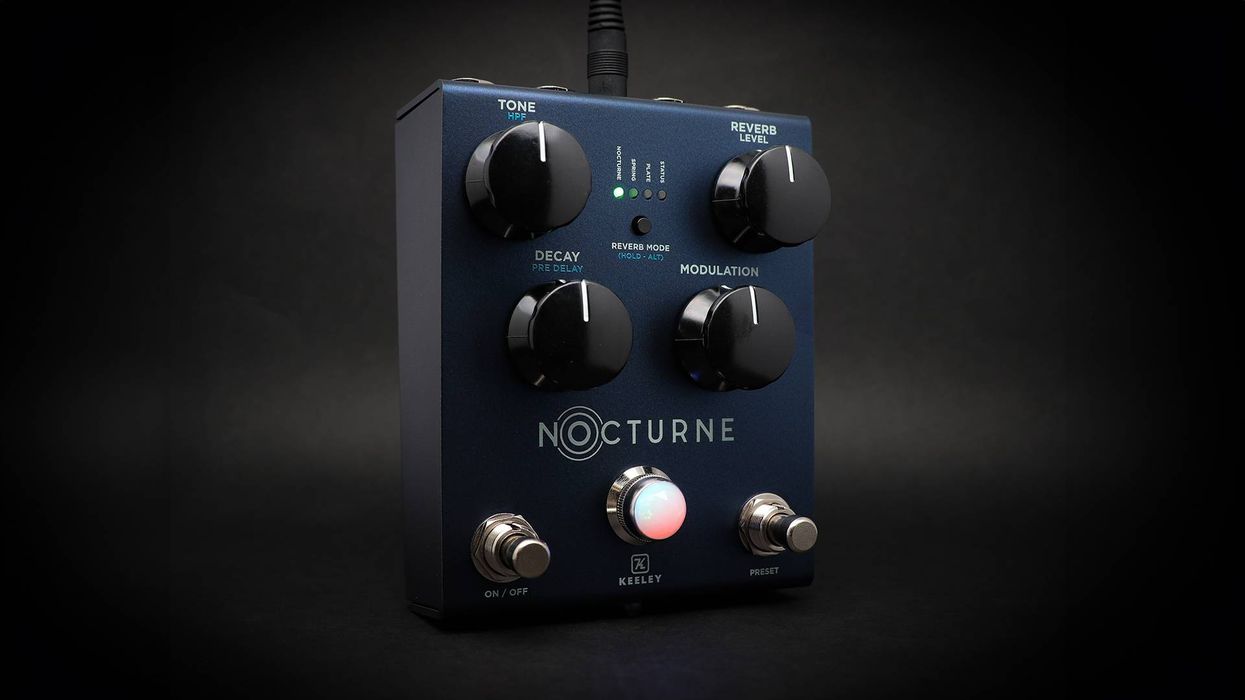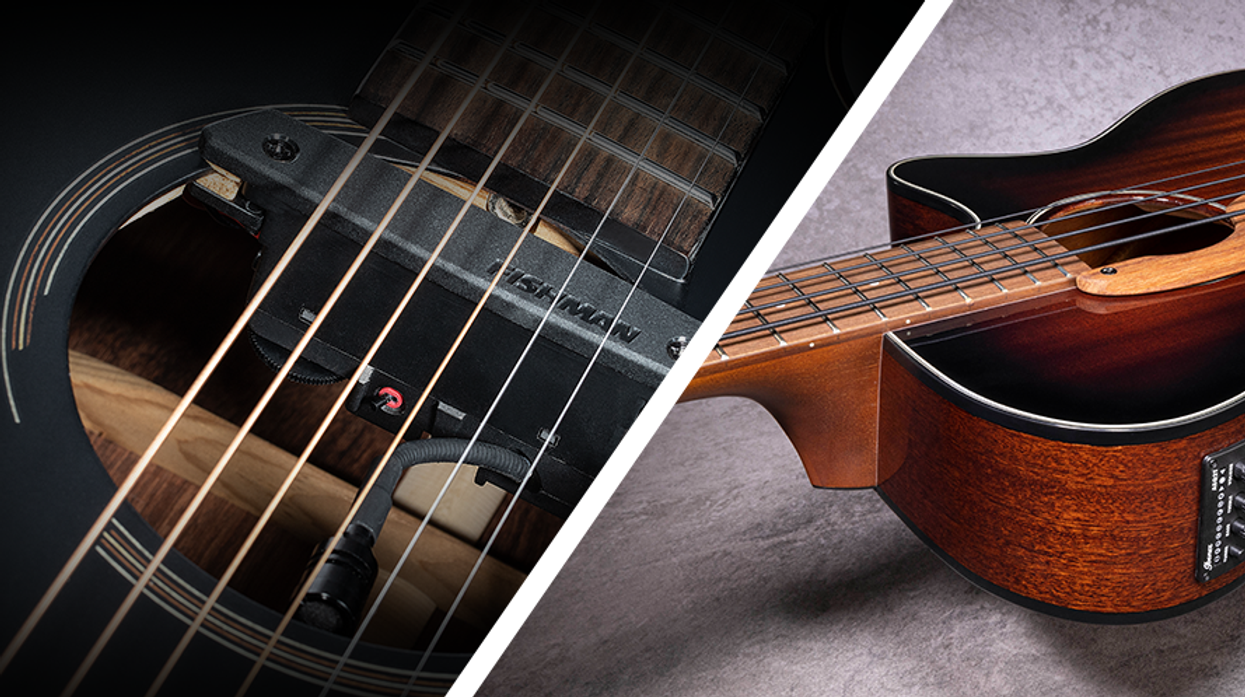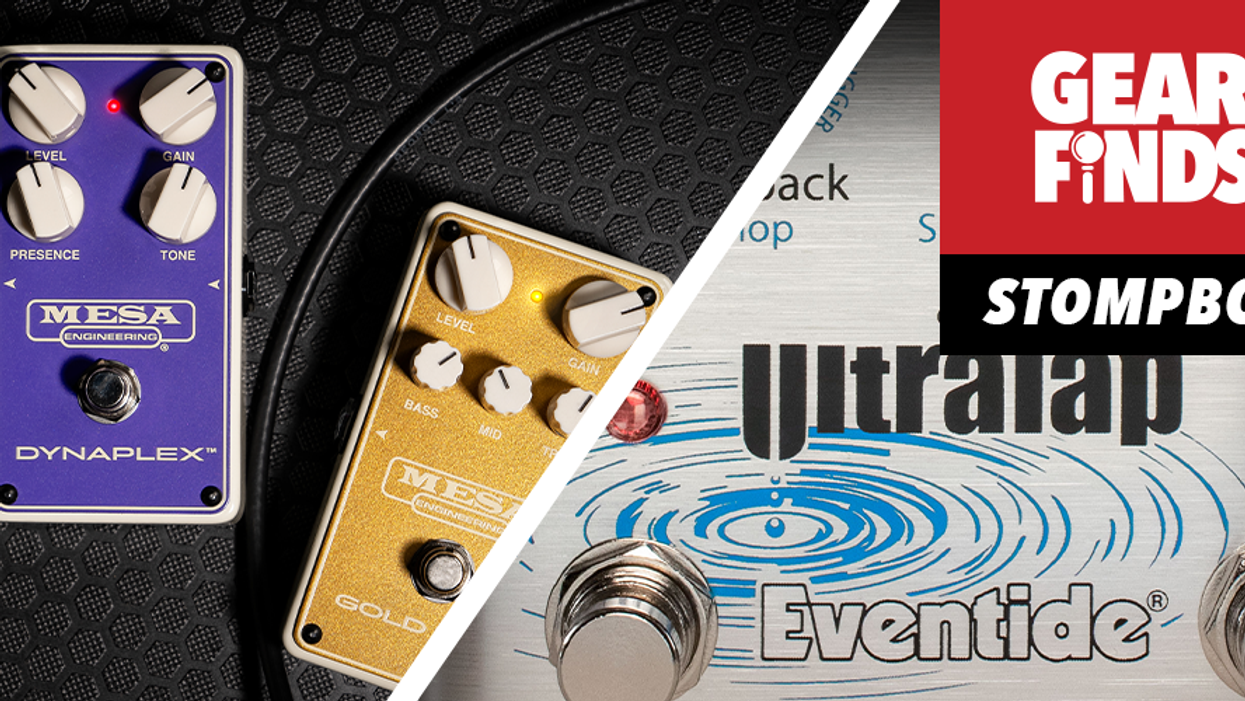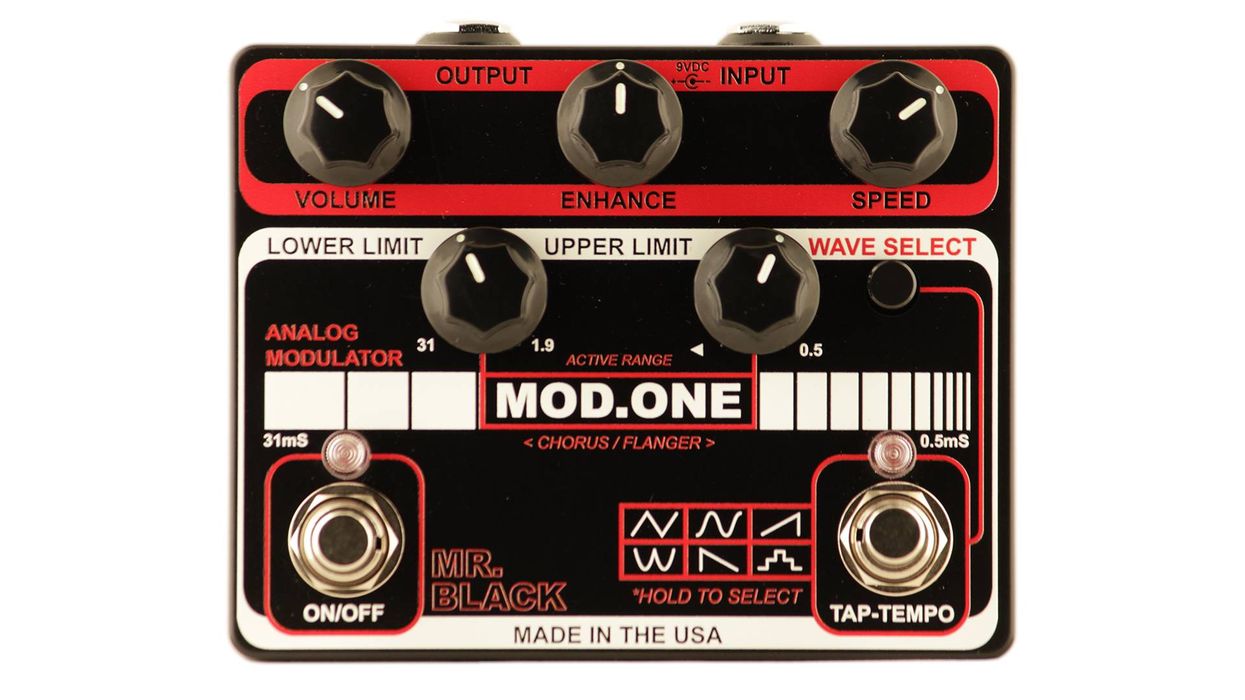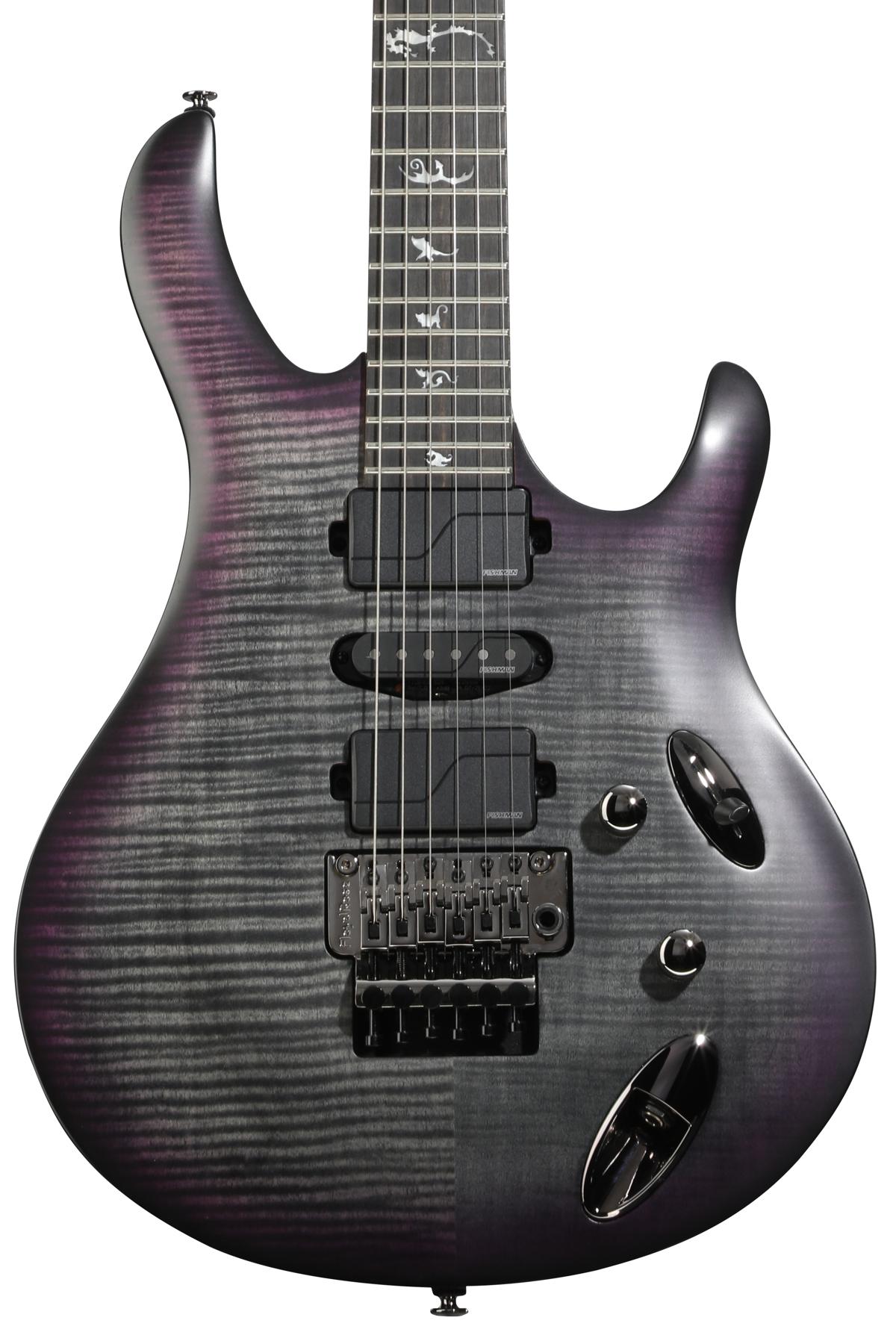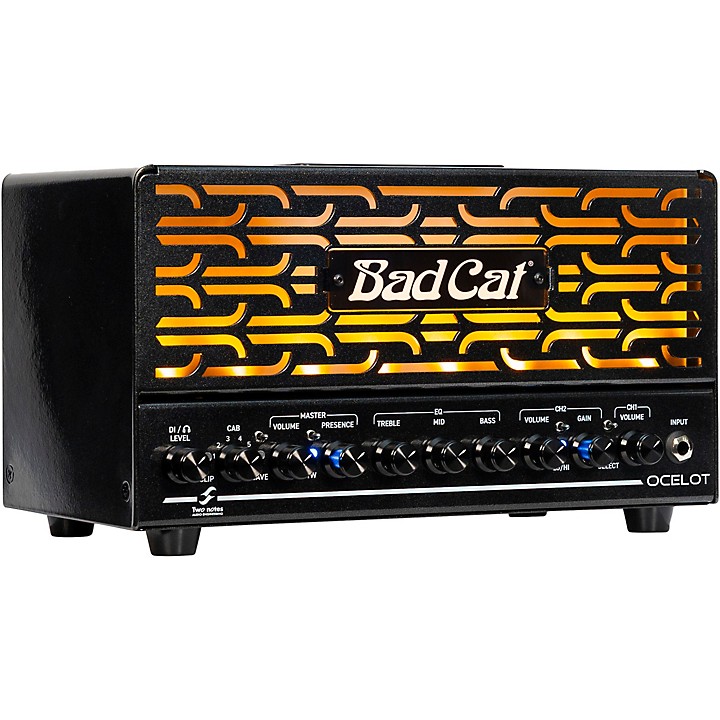RatingsPros:Well-built with a comfortable neck, surprisingly light weight, and classic tones. Hardshell case. Cons: P-90s might not be the most versatile pickup option. Street: $1,399 (with hardshell case) Vox Bobcat V90 voxamps.com | Tones: Playability: Build/Design: Value: |
The original Vox Bobcats from the mid 1960s are the kind of guitar our the kind of guitar our Wizard of Odd columnist Frank Meyers writes about. They were license-built for Vox in Italy by Eko and Crucianelli—theoretically to compete with Gibson’s ES series (though at $329 they were about the same price as the most affordable double cutaway Gibson ES).
First-generation Bobcats were more prone to feedback and less consistent in quality than much of their Kalamazoo-built competition. They also featured bolt-on rather than set necks, which made the near-Gibson price harder to stomach for some customers. But they were stylish, generated distinct tones, and remain coveted by connoisseurs. Vox’s Korea-made reissues are a different breed in many respects. They feature set-neck construction, a stable Tune-o-matic bridge, trapeze tailpiece, two pickup options, and are highly feedback resistant despite being a featherweight 6.8 pounds.
They’re also handsome critters. My eyeballs were pleased when I opened our test Bobcat V90’s hardshell case. Its glossy black finish with white binding has a classy tuxedo look, which flatters the Bobcat’s 16.37" x 3.23" x 18" framework. White-and-black pinstripe binding around the maple laminate body and the 3-ply pickguard, with a black center layer, add to its charm. The white soapbar P-90s are also are a perfect fit for this particular color scheme. (For the record, the Bobcat is also available in cherry red and sunburst. There’s also a three-pickup version called the S66, with three slimmer, more period-correct single-coils.) The headstock is home to a mid-’60s era pearloid “Vox” overlay, while the block inlays that adorn the 22-medium-fret mahogany neck and Indonesian ebony fretboard are true to the original edition and add to the instrument’s good looks.
Featherweight Contender
When I lifted the Bobcat out of the case, I was shocked by its light weight. I’ve never felt a semi-hollowbody that practically floated. And at a bit under 7 pounds, it’s three very noticeable pounds lighter than my own Gibson ES. Some of the featherweight feel is achieved via a clever weight-relieved spruce center block that reduces mass by slimming of the block aft of the bridge and around the pickup routes.
The Bobcat V90’s other appointments are smart, high-quality additions. While the original had a floating bridge with Jazzmaster-style grooved-barrel saddles and Bigsby-style vibrato, the new Bobcat has a Tune-o-matic with a trapeze tailpiece—making basic string adjustments, like adjusting the action, much simpler. The open-gear Grover tuners are aluminum— another weight-reducing feature that’s also borrowed from the original design—and the nut is a comfortable 1.69" across. Speaking of comfort, the thin, gentle C-profile set neck and 25" scale are very inviting and the deep double-cutaways make every note on the fretboard accessible.
There are no surprises when it comes to the electronics. Output from the P-90s (a pickup option never offered on the original) is controlled via a familiar two-volume/two-tone knob array. Thoughtfully, the pots have just enough resistance to rotate comfortably but ensure you won’t make errant adjustments by whacking a dial with your hand or sleeve in the heat of performance. Just as on the ’60s edition, the knobs are skirted, brushed aluminum.
To Screech or To Preach?
Even before plugging the Bobcat into my Carr Vincent’s brawny mid-boost circuit and taking turns with J. Rockett Archer, RAT, and Big Muff pedals, I was kinda in love with the Vox. The smooth, black-finished neck made cruising the fretboard easy, and the guitar feels equally copacetic with a delicate or heavy picking touch.
The tones are terrific. It preaches in a lovely vintage voice, with a warm and slightly wooly neck pickup that made me think of the 5 Royales’ Lowman Pauling, Jr.—a big influence on Steve Cropper—and other ’50s and ’60s soul/blues guitarists. Combining the bridge and neck pickups produces rich, sweet mids that sound luxuriant and make sustained single notes ring gracefully. The bridge pickup has snap and spank to spare. But the tone controls are responsive, and dialing back the tone pots makes the Bobcat sound more like a pure hollowbody—which is great if jazz or T-Bone Walker is your bag. With amp reverb in the mix, the Bobcat is an absolute time machine and it effortlessly yields tones you’ve heard on countless classic blues, R&B, and early rock records. I even had fun gently pulling up the trapeze to create quivering semitone vibrato. Impressively, it never tugged the resilient and stable Bobcat out of tune.
Given the Bobcat’s weight, I was skeptical about Vox’s claim of feedback resistance. But when it was time to get dirty I was pleasantly surprised with the guitar’s performance. Combined with my overdrive and fuzz pedals and the Carr in its more aggro midrange boost mode, the Bobcat growled rather than squealed. And I only generated feedback when I pushed past the medium gain amp settings that seem most appropriate for this guitar and stood in proximity to the amp. The Vox’s squeal-resistance is even more impressive with fuzz in the mix. The tandem of Big Muff and Bobcat inspired a Nuggets-style fuzz fest, but the Vox’s overall feedback resistance was comparable to my Strat and P-90-equipped Les Paul Special. That said, this guitar really sounds finest with clean or semi-clean amp settings, where it’s deliciously old-school voice and semi-hollow overtones really sing.
The Verdict
If you’re playing three or four sets of music every night that demand a variety of clarion vintage tones, the Vox Bobcat is an excellent, easy-to-play companion that won’t compress your vertebrae with its heft. And as a player who’s experienced that situation with a Les Paul strapped on, I do not take the Bobcat’s combination of light weight and big voice, um, lightly. If you’re looking for a widest-possible variety of sounds or a one-instrument-for-all-occasions 6-string, the V90 version of the Bobcat might not be your kitty, but there’s a lot to like about this beautiful, comfortable, and playable axe in its P-90 guise.
Watch the Demo:
The Bobcat’s volume and tone pots were full up for this demo.








![Rig Rundown: Russian Circles’ Mike Sullivan [2025]](https://www.premierguitar.com/media-library/youtube.jpg?id=62303631&width=1245&height=700&quality=70&coordinates=0%2C0%2C0%2C0)






